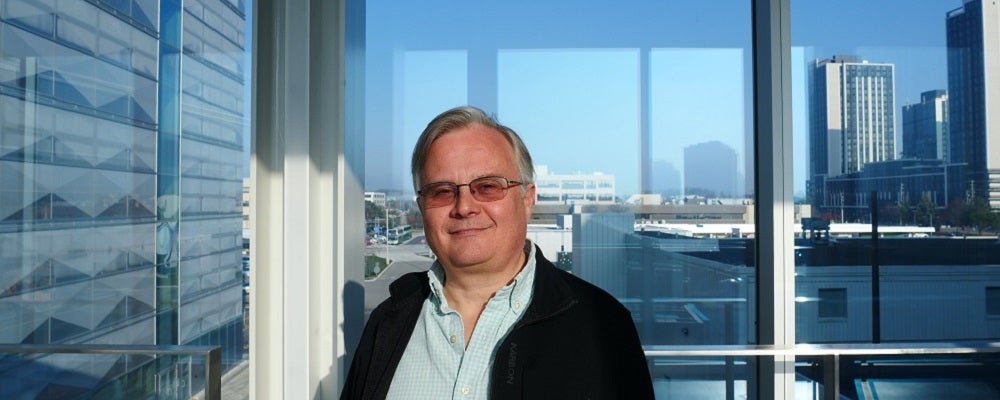
Professor Eric Croiset is one of the Principal Investigators for a new initiative that will examine technologies designed to reduce CO2 release into the environment. The purpose of the project is to assist informed policymaking to achieve net-zero emissions.
“This work will position ourselves well in terms of combatting climate change in Canada,” said Croiset.
The University of Waterloo team also includes three professors from the Faculty of Environment, Professor Vanessa Schweizer, Professor Juan Moreno-Cruz and Professor Neil Craik. The team will assess technologies and relevant policy pathways for the deployment of Direct Air Capture. For example, capturing carbon already in the atmosphere.
The study also aims to advance our knowledge of which technologies designed to capture carbon already in the atmosphere, such as Direct Carbon Capture and sequestration, will be most effective in preventing climate change.
“Scientific research underpins everything we do to fight climate change. This funding provides critical support, allowing government and academia to work together in exploring practical and achievable climate change solutions. By leveraging our unique expertise, we can foster collaboration across disciplines, sectors, communities, and research bodies,” commented the Honourable Steven Guilbeault, Minister of Environment and Climate Change.
There are promising options that may help to close the carbon cycle. The task of this team is to explore the efficacy of different methodologies including looking at everything from their measurement tools to assessing environmental risks associated with utilizing these technologies. Economic viability and best policies for scaling up technologies, whether through tax credits, carbon price or other means, will also be considered.
“The Intergovernmental Panel on Climate Change has found that negative emissions technologies, such as Direct Air Capture, combined with carbon capture and sequestration may be key to keeping climate change well below two degrees,” said Schweizer. “This project will help Canada anticipate the resource and governance requirements needed to develop and deploy these new technologies over the coming years.”
This five-year initiative was announced by Environment and Climate Change Canada on November 23. It has a budget of over a million dollars in funding, with $480,000 funded by Environment and Climate Change Canada’s Climate awareness and Action Fund.